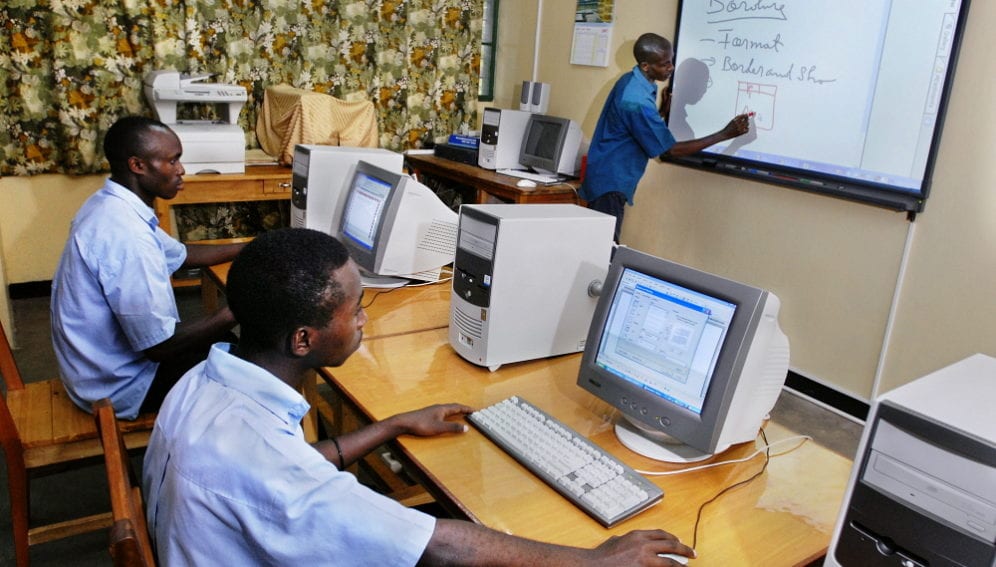Send to a friend
The details you provide on this page will not be used to send unsolicited email, and will not be sold to a 3rd party. See privacy policy.
Advances in Africa’s technology sector offer lessons for science’s role in development, says Elizabeth Rasekoala.
The discussions and declarations of the Seventh Conference of African Ministers in Charge of Integration (COMAI VII), held in July in Swaziland, encouragingly affirmed the links between infrastructure development and the enhancement of science, engineering and technology (SET) skills and capacity on the continent. They also articulated the need to include science, technology and innovation (ST&I) policies within the African Union’s agenda for integration.
Alongside this, the Rio+20 summit in 2012 and the ongoing discussions about the post-2015 global development agenda have highlighted the challenges of mainstreaming science in these strategic development frameworks.
These discussions imply a marginalisation of science. For science to effectively raise its profile and contribution to this new global development trajectory, and for scientists to innovatively engage with the political dynamics that the agenda-setting processes require, we need to rethink the nature of the scientific enterprise itself.
The risk of marginalisation should also act as an imperative for scientists to frame, address and mainstream the social inclusion agenda — by which I mean paradigms such as race and Eurocentric hegemony, gender, social class and social inequalities.
Technology’s decoupling
The way science is taught, researched and practised needs to evolve in a dynamic, emancipative and systematic way. Only then will it generate and sustain social inclusion paradigms — which would engender enhanced political buy-in for science in development.
For example, despite the wealth of indigenous knowledge systems in Africa, they hardly feature in science education, research or practice on the continent. Such is the overwhelming nature of Eurocentric and racial hegemony in science.
“Universities and tertiary institutions feature the same divide: poor or non-existent equipment or labs for science and engineering, while technology tools and resources are prioritised.”
Elizabeth Rasekoala
This is a real missed opportunity for the development of the African-centric ownership of scientific endeavour and action. And the result is a science system that is seen as foreign and elitist.
There are crucial lessons to learn here from the technology sector. We frequently put science, engineering and technology under umbrella terms such as SET and ST&I. But over the past decade, the technology sector has quietly decoupled from the science sector. In doing that, it has set itself on a transformative and progressive trajectory of social inclusion and political engagement.
Africa is among the most innovative regions for mobile technology services worldwide. A key feature of this advancement has been the African-centric nature of this innovation drive —developments have been conceptualised, delivered and owned by the agency and expertise of Africans in sectors including financial services, entertainment and agriculture. There are many examples, from the M-Pesa money transfer system in Kenya to online Nollywood films to agricultural information systems for small-scale farmers.
Even the engineering sector has begun to strongly articulate its role in the realms of sustainable development and social inclusion. It has done this through the creation of development engineering courses and other relevant disciplines in various institutions, and the planned launch of the Journal of Development Engineering in 2015 — the first of its kind and a noteworthy example of this inclusive transformation.
Science funding failures
The lack of social inclusion and thus political engagement in science, in comparison with technology, is further highlighted by the struggle to get African governments to commit to the pledge they signed in the 1980s in the Lagos plan: to spend one per cent of GDP (gross domestic product) on scientific research and development. Only five African countries have so far met this target, with Rwanda being the only country that has exceeded it at three per cent.
While this might be seen simply as an issue of underinvestment, anecdotal evidence suggests the core reason is that many African governments remain unconvinced of science’s pivotal role in development. I believe the lack of social inclusion in science makes it even harder to convince them.
This yawning gap is highlighted at all levels of government in Africa and is particularly evident in the public funding of schools, universities and tertiary institutions. Officials willingly fund the provision of technology resources and tools in schools — you would have to go far to find one without at least half a dozen computers — but not of scientific equipment and laboratories.
Why, then, is science still lagging so far behind technology? When I put this observation to a local government official, the response was telling: “If I put a science lab in the school, it will only benefit the clever children and mainly then the boys, because the girls, they are not interested in science, but they are as interested in technology as the boys; and therefore seeing as technology is more inclusive, with the little funds that we have, it is better to put technology in the schools instead of science labs and equipment.”
Universities and tertiary institutions feature the same divide: poor or non-existent equipment or labs for science and engineering, while technology tools and resources are prioritised.
In the spirit of African Solutions to African Problems — an initiative that drives change in the mind-set led by the African Union’s 50-year development strategy Agenda 2063 — African scientific institutions will have to do the heavy lifting on this challenge. Through African-centric leadership, action and vision they will need to show the way forward on how the continent constructs a radically transformative system for science education, research and practice — a system that engages, delivers and sustains social inclusion and political engagement for sustainable development.
Elizabeth Rasekoala is a chemical engineer and chairperson of Green Shift Africa, an NGO working to advance water, food and energy security in Africa. She can be contacted at [email protected]














